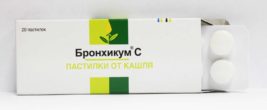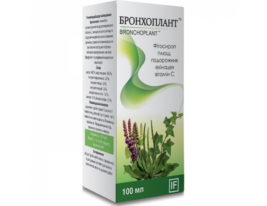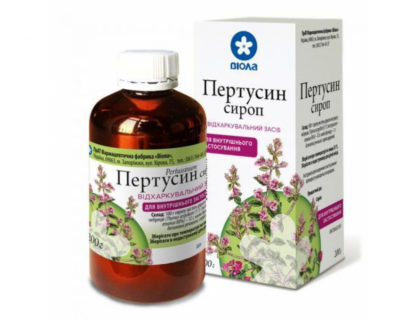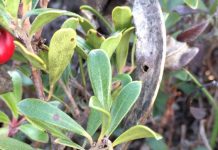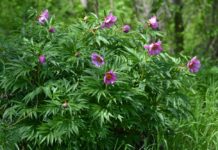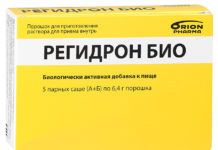In ancient times, with the help of thyme (thyme) they got rid of many deadly ailments, in particular, consumption. Now this herb continues to be used mainly as a tea for respiratory diseases. However, the plant has much more ways to use, it is only important to remember the medicinal properties and contraindications of thyme.
Material Content:
Thyme - useful and healing properties
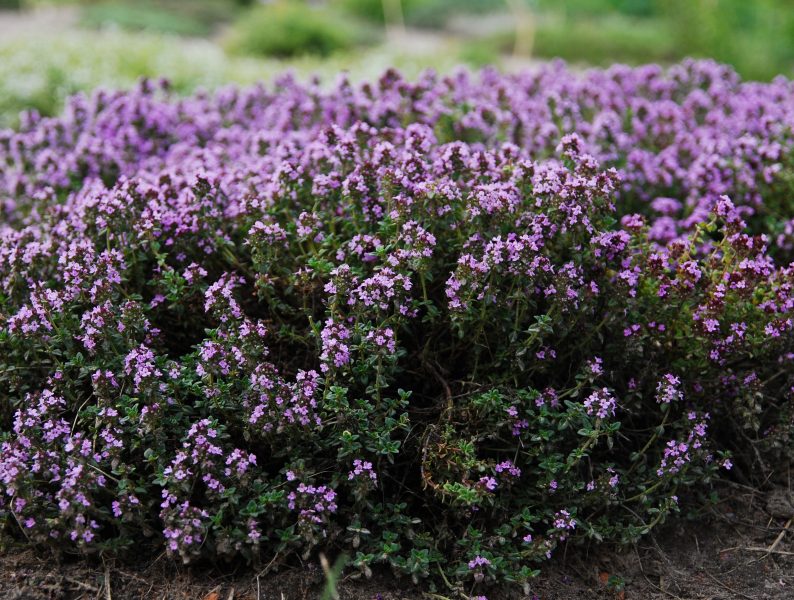
Thyme contains a large number of healing substances.
- The main ones are vitamins of group B, as well as A, E, K and C.
- Of the minerals, calcium, magnesium, iron, selenium, and potassium are worth mentioning.
- In addition, in thyme there is thymol, ursolic acid, gum, linalol, ascaridol, carniophylline, borneol and others.
In folk medicine, the terrestrial part of the plant or essential oil made from leaves and stems is used. It has antibacterial, antimicrobial and antifungal properties. It can be used externally and as aromatherapy.
Thyme extract is used to thin out sputum and quickly cough. In terms of effectiveness, this remedy is in no way inferior to expensive syrups and potions. And this is especially useful when a child is sick, because thyme can be used from the age of three.
Thyme decoctions are used for:
- spasm relief;
- getting rid of flatulence;
- in the treatment of inflammatory processes in the oral cavity, pharynx, larynx and lungs.
Teas and infusions help:
- normalize blood pressure;
- improve sleep and emotional state;
- increase appetite;
- reduce the manifestation of radiculitis and neuralgia;
- get rid of flatulence.
Benefits for women, men
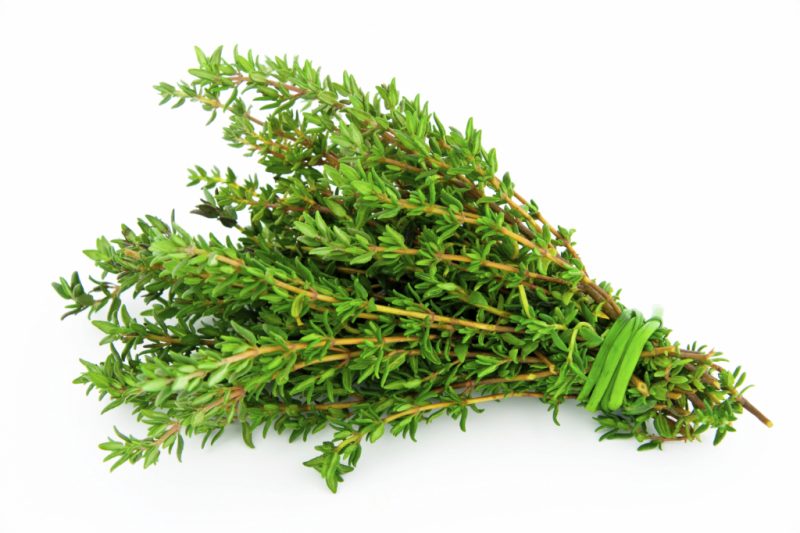
- Thyme herb can be used in cosmetology. Infusions improve the appearance of hair, contribute to their easy combing and strengthen hair follicles. For this, a strong decoction of thyme is rubbed into the scalp or rinsed with hair after washing.
- Thyme oil is used for inhalation when steaming the skin, which allows you to saturate the dermis with useful substances, open the pores and clean them of bacteria and dirt.
- They also use a tonic for the skin, which helps narrow the pores, normalize the sebaceous glands, and reduce the number of inflammatory elements. To do this, 50 g of dry extract should be poured with a glass of boiling water, insist for half an hour and strain. The resulting infusion should be wiped on the face twice a day.
- Less concentrated thyme infusions can be used for the whole body, in particular, as an adjunct therapy in the treatment of cellulite and fatty deposits. For this, 4 tbsp. l thyme is poured with 1 liter of boiling water and insisted for 40-60 minutes. Then the liquid is added to the warm bath. Frequency of use - 1-3 times a week for 10-15 minutes.
- Healing broths are recommended for women who experience severe pain during menstruation. Thyme teas can significantly reduce pain cramps, and also have a beneficial effect on the normalization of the cycle.
The beneficial properties of thyme can be felt not only by lovely ladies, but also by men. Teas and decoctions from this plant activate the production of enzymes that control blood circulation, which favorably affects potency. And selenium, which is part of the plant, is involved in the production of testosterone.
- To treat infertility and increase male strength recommend this infusion: 2 tbsp. l chopped thyme pour 0.5 liters of boiling water and let it brew for 2-3 hours. Strain and use the broth twice a day for two weeks.
- Ursolic acid, which is enough in the thyme, fights tissue atrophy. Therefore, after intensive strength training and for the speedy regeneration of muscle fibers, it is necessary to apply compresses. The recipe is very simple: pour dry or fresh thyme herb with boiling water and leave for 10-20 minutes. Then remove excess moisture, and wrap the plant in gauze. Apply a compress to the sore spot and tightly fix with cling film.
- For those men who do not want to part with their own hair, it is necessary to rub a mixture of thyme oil and vodka (3-4 drops of ether per 1 tsp of alcohol) into the hair roots. You can apply such a composition no more than 2 times a week, otherwise there is a risk of overdrying the scalp.
What diseases is used for?
Thyme contains essential oils that have occupied their niche in traditional medicine and cosmetology. Due to its composition, its prescribed for the treatment of respiratory diseases, gynecological problems, relieving nervous tension, as well as getting rid of addictions. Not for nothing that psychologists recommend drinking tea with honey and thyme to those people who want to recharge their batteries and increase their self-confidence.
With cough and bronchitis

The main purpose of the thyme is the prevention and treatment of colds, viral and bacterial diseases of the respiratory system of the body.
- Thyme in the form of infusions, broth or tea contributes to the expansion of the bronchi and the rapid elimination of sputum.
- The plant has a mild disinfecting effect, so it actively fights against infectious agents, for example, with angina.
- It is also prescribed to reduce mucus production and productive coughing.
Thyme is most useful with hot drink, honey and other medicinal components: lemon, chamomile, hypericum, linden, sage.
To prepare the infusion, you need 1 tsp. chopped herbs (dry or fresh) pour 200 ml of hot boiled water and insist in a closed container for at least 20 minutes.It is better to use a teapot or thermos for these purposes. The resulting liquid should be drunk in small sips throughout the day. The frequency of use and duration is selected individually.
With gynecological diseases
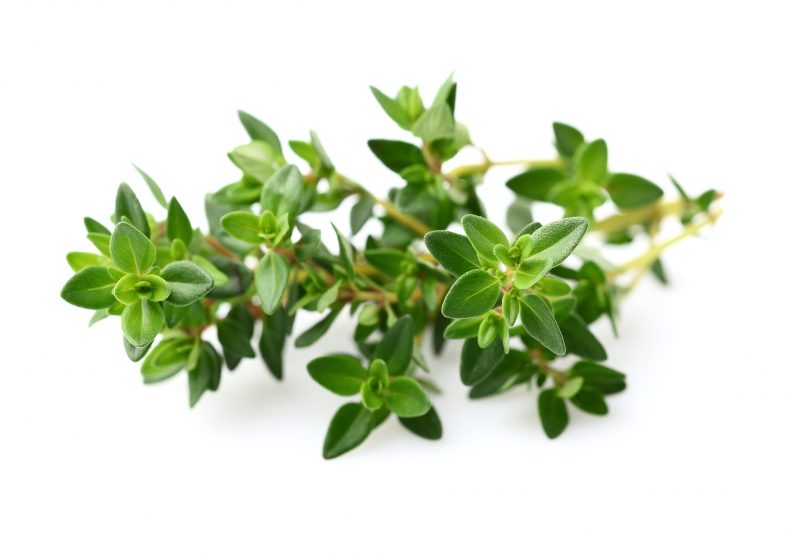
Grass is used to treat diseases such as:
- colpitis;
- endometritis;
- vulvitis;
- bartholinitis.
The listed ailments are accompanied by a change in the microflora of the internal genital organs and blockage of the glands, which are accompanied by purulent discharge.
Thyme, thanks to its antibacterial effect, eliminates not only the symptoms of diseases, but also the cause itself.
During treatment, sitz baths and lotions are prescribed. For one procedure, you need a collection of 3 tbsp. l thyme, 2 tbsp. l calendula flowers and 2 tbsp. l chamomile officinalis. Pour the dry mixture with 0.5-0.6 l of boiling water, boil for a minute and insist in a closed container for 10-15 minutes. After that, you can take a sitz bath for 20-30 minutes. If necessary, the broth should be slightly cooled.
With bartholinitis, lotions are more effective. Pour a few twigs of thyme with boiling water, then wrap in a thin scarf or three times folded gauze. Apply to a sore spot for 5-10 minutes, periodically dipping in a warm solution.
With hypertension
Thyme has the unique property of bringing both low and high blood pressure back to normal. In the first case, the therapeutic effect is achieved by increasing blood circulation and energy boost. In the second - by reducing the tone of the vascular walls and their expansion. However, this action has a short-term result, therefore, with serious pathologies, it is recommended to consult a doctor.
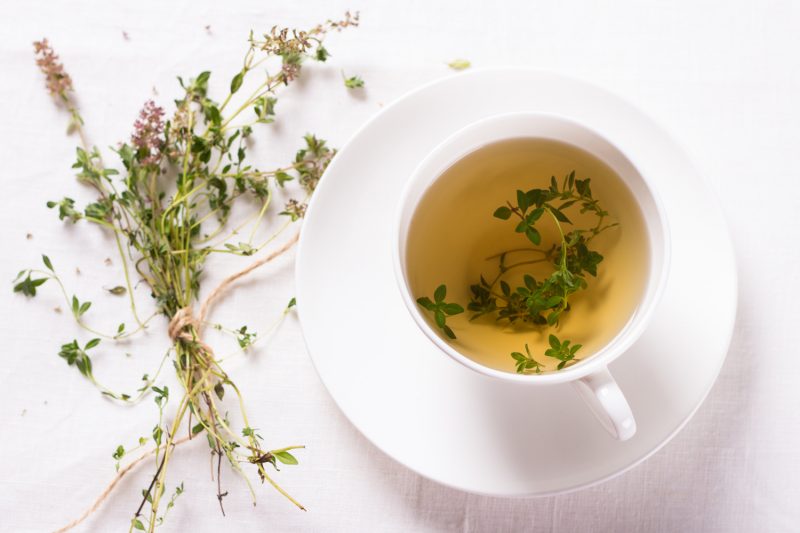
If the increase in blood pressure is associated with psychoemotional or physical exertion, changing weather, vasospasm or inflammation, thyme can be used for 3-5 days.
A decoction to reduce pressure is prepared according to this recipe: boil 250 ml of water, pour 1 tbsp there. l thyme. Simmer for 20–25 minutes, then insist for an hour. Take a drink 3 times a day in a tablespoon before meals.
In the fight against alcoholism
It can be difficult to overcome addiction. Then a folk remedy will come to the rescue. To do this, 20 g of thyme herb should be filled with 500 ml of boiling water and put in a water bath for 15 minutes. After this, strain the broth and add more water to get 0.5 l of liquid.
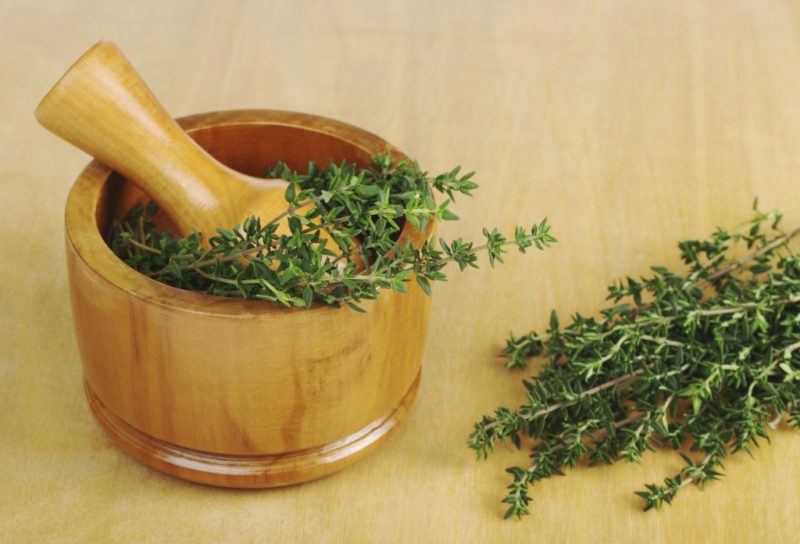
Method of application: drink 50-60 ml of tincture with a half glass of alcohol 3-4 times a day. The duration of treatment is from 1 to 2 weeks, although the effect occurs much earlier.
The healing effect is associated with thymol, which, when combined with alcohol, provokes nausea and vomiting. Therefore, addicted people note an aversion to strong drinks the very next day of therapy. It is important not to reduce the duration of the main treatment when the first signs of improvement appear, otherwise the mechanism for refusing alcohol will not have time to consolidate.
Ways to use thyme
For colds, as well as to increase immunity and protect against respiratory diseases, teas, decoctions and tinctures are prescribed.
Tea, infusion and broth
Tea is made like this. A spoon of dry grass is poured into a glass of boiling water and insisted for 10 minutes. Take in a warm form for half a cup 2-3 times a day. To get a decoction, you need to take a little more water and boil the thyme on low heat for an average of 3-5 minutes, then insist 30-40 minutes. The infusion is prepared by analogy with a decoction, only the exposure time is increased to 2–2.5 hours.
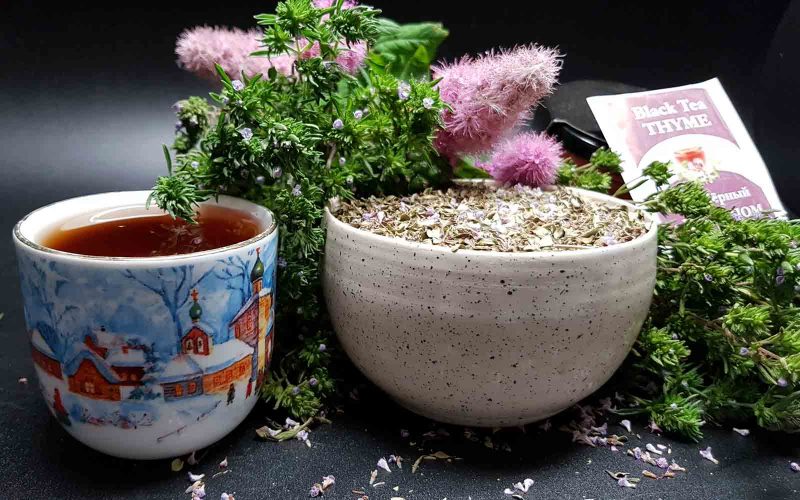
So that the taste of the drink is not very sharp, it is possible to add medicinal herbs, for example, chamomile, yarrow, oregano, mint, and also sweeteners (sugar, honey or jam).
Syrup and butter
For cough syrups are used, which include thyme. You can prepare the medicine yourself. To do this, add a few tablespoons of broth or thyme infusion to the burnt sugar (1-2 tbsp. L. Melt in a pan in a small amount of water) and stir.
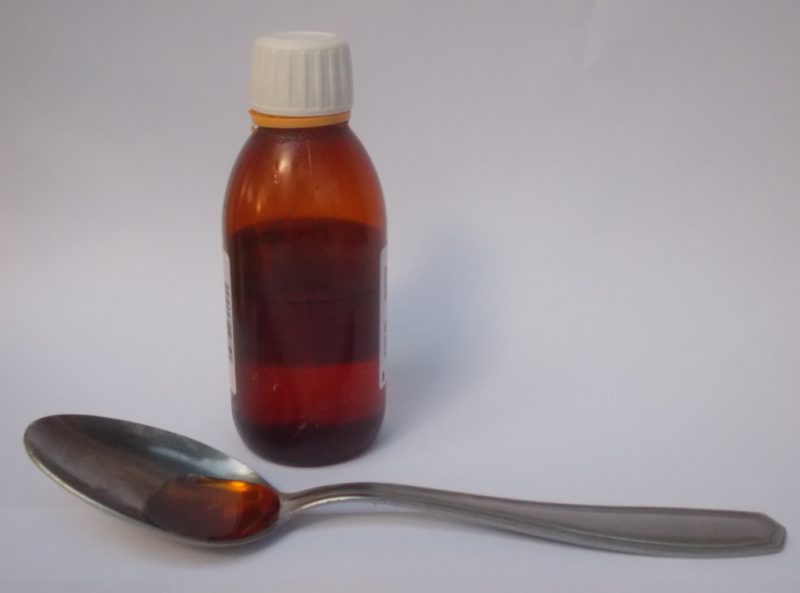
Essential oil can be added to ointments and creams for external treatment of skin problems (eczema, inflammatory form of acne, dermatitis, fungus), gynecological diseases, and can also be used in pure form in aroma lamps or inhalations. It is acceptable to add 1-2 drops to tea, but you should avoid getting undiluted product on the mucous membranes.
In addition to the therapeutic effect, thyme is also used in cooking. Spice is added to broths, meat and fish dishes, pastries.
Can thyme be used during pregnancy?
Everything that enters the body of a woman has an effect on the fetus, so before using thyme, you need to get specialist advice.
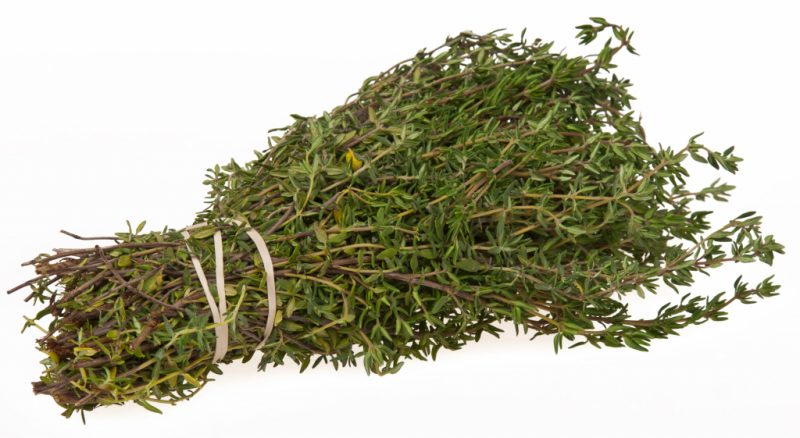
In some cases, for example, with low blood pressure, intestinal cramps, colds or inflammatory processes of the pelvic organs, the beneficial properties of thyme will be very useful. But if a woman has heart problems, hypertension or an increased tone of the uterus, the plant is more likely to harm.
In any case, the use of folk remedies should be carried out under the supervision of a doctor and with strict adherence to dosages.
Pharmaceuticals
Thyme can be purchased at pharmacies or specialty stores in any form of release. Most often, essential oil and dry extract are found in the form of a collection or tea filter bags of the same name. Drops and sprays for the throat, nose and mouth are also found.
As the main component, thyme is used in:
- lozenges - “Bronchicum”, “Bronchostop”;
- cough syrups - Bronchoplant, Tussamag, Pertusin, Pectolvan, Bronchial, Timsal, Herbion, Doctor Tys syrup, Bronchosept, Stoptusin, Ekvabal and other
Contraindications and side effects
Thyme cannot be used by young children.

It is contraindicated in such cases:
- with diseases of the kidneys or liver;
- with gastritis with high acidity and gastrointestinal pathologies;
- with frequent constipation;
- thyroid dysfunction;
- arrhythmias;
- atherosclerosis;
- asthma
- emphysema,
- chronic hypertension.
With great care, the grass is prescribed for children from two years and pregnant women. An absolute contraindication is the individual intolerance of the plant. In case of an overdose or allergy, nausea, vomiting, excessive sweating may occur.
In general, thyme is an effective folk remedy for the treatment of many ailments. But it must be used wisely in order to receive only benefit.


